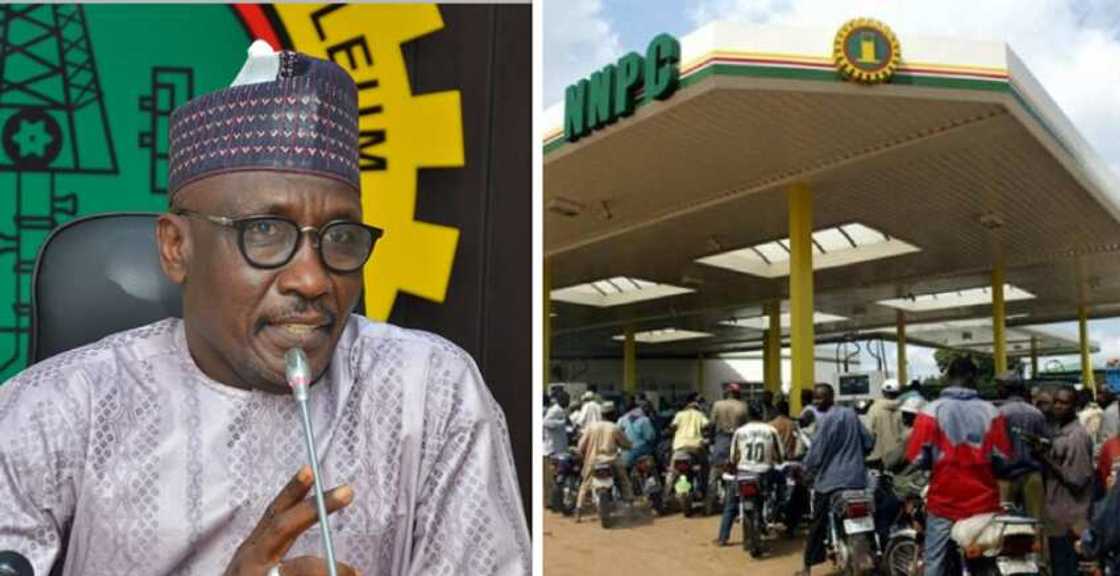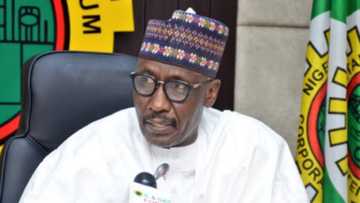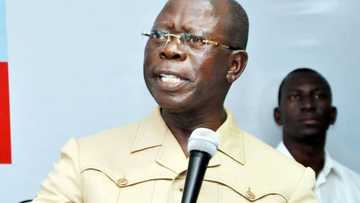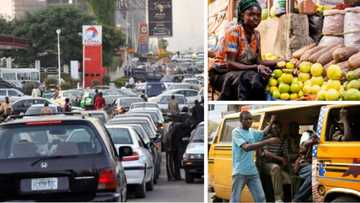NNPC Breaks Down Reasons for Subsidy Removal and Fuel Price Hike
- NNPC Ltd has given concise reasons for FG's fuel subsidy removal and the pump price hike which followed
- The company said that as at March 2023, the Federal Government was owing it the sum of N2.8 trillion
- It added that it will no longer fix prices as market forces will determine prices at any given time
The sudden removal of fuel subsidy by the Federal Government and the resultant hike in petrol prices may have come as sad news to many Nigerians struggling every day to make ends meet.
Even though the government of President Bola Tinubu has continued to emphasise the need for subsidy to be removed, it fails to address the transcending negative economic impact on Nigerians and businesses.
In order to sensitise Nigerians on the Federal Government's declaration ending the fuel subsidy regime and the consequential increase in the price of petrol, the Nigerian National Petroleum Company Limited (NNPCL) attempts to answer most of the frequently asked questions regarding the highly discussed economic issue.

Source: UGC
Why the petrol price increase before June?
PAY ATTENTION: Сheck out news that is picked exactly for YOU ➡️ find the “Recommended for you” block on the home page and enjoy!
Answering questions regarding why petrol prices were increased before June when the fuel subsidy is supposed to eventually end, the NNPC said that as at March 2023, the Federal Government was owing it the sum of N2.8 trillion.
It added that delaying the elimination of fuel subsidy until late June 2023 could have led to a significant fuel shortage and widespread adversity, as the market's capacity to maintain an adequate supply would have been severely compromised.
Why sell old stock at new price?
Speaking on why NNPC Ltd is selling the old stock at the new price, it stated that if fuel stations continue to sell at the old price, they will be unable to replenish their stocks, ultimately leading to a nationwide scarcity of fuel.
Will petrol price continue to rise?
On the question, if petrol prices will continue to rise like we have seen in the few days of the subsidy removal, NNPC Ltd answered, stating that market forces will determine prices at any given time.
With the entrance of competition, the market will naturally self-regulate the prices. Therefore, the current price is merely temporary, and within a week or two, you can expect to witness varying prices as major players adopt different strategies. Ultimately, there will likely be downward changes due to increased efficiency in the market.
Why did NNPC publish prices?
Addressing the reason why it published new pump prices for petrol across Nigeria, the company said it does not determine the pricing of petrol within the industry. Similar to other companies, NNPC Ltd establishes its petrol price in accordance with market conditions and forces.
Will NNPC remain the only supplier of petrol?
Another question brought to the fore is whether the NNPC will remain the sole supplier of petrol, to which the company answered in the negative, stating that by law, no player in the sector can control more than 30% of the market.
How will consumers be protected?
Since NNPC Ltd now functions as a private company and a player in the oil and gas industry, how will consumers be protected?
The company clearly stated that the protection of consumers will be handled by industry regulators like the Nigerian Midstream and Downstream Petroleum Regulatory Authority (NMDPRA) and also the Consumer Protection Council.
The future of petrol supply to domestic market
Finally, giving an insight to the future of petrol supply to the domestic market, it said that the NNPC Ltd along with Dangote Refinery and other domestic refineries will ensure that petrol is available and create employment for Nigerians.
In addition, they will improve Nigeria's foreign exchange reserve and increase the country's Gross Domestic Product (GDP).
NNPC adjusts petrol prices across major cities in Nigeria
In related news, Legit.ng reported that the Nigeria National Petroleum Company (NPPC) Limited implemented petrol price adjustments in three major Nigerian cities in response to the removal of the petrol subsidy.
This move aims to bring transparency to the situation following the elimination of the contentious subsidy program, which previously consumed approximately $10 billion annually.
As per reports, the impact of this change is evident in Lagos, where the NNPC's retail outlets now sell a litre of petrol for N488, while in Port Harcourt, the capital of Rivers State, the price stands at N511 per litre.
Being the exclusive provider of petrol in Nigeria, the NNPC's adjustment is expected to prompt other marketers to follow suit and revise their prices accordingly.
Source: Legit.ng






